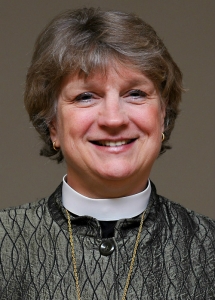 By Bishop Ann Svennungsen
By Bishop Ann Svennungsen
Where do you find hope? In the polarization leading up to the election, what hope sustains you?
I shouldn’t be surprised that I find hope in the writings of Marilynne Robinson. The honest hope in her books, Gilead and Lila and, perhaps, her latest book, Jack (though I’m still 115 on the library waiting list to check it out), have long been a source of sustenance for me.
In looking for hope as I prepare for the November 3 election, I keep returning to Robinson’s October 9 editorial in the New York Times: “Don’t Give Up on America.”
“What do you do when you love something that’s in crisis? Well, you don’t give up on it.”
She begins by declaring her love for America: “I have spent most of my life studying American history and literature because of a deep if sometimes difficult affinity I would call love.”
Her love rests firmly on our country’s affirmation from the beginning that all people are created equal. For Robinson, “The ethic that ‘human beings are sacred, therefore equal,’ should be the standard by which we judge ourselves, our social arrangements, our dealings with the vast family of humankind.”
That said, the ethic “will always find us wanting. [It] is a progressive force, constantly and necessarily exposing our failures and showing us new paths forward.”
AS WE LOOK TOWARD November 3, we may have an even deeper sense of being “found wanting.” Conspiracy theories about election fraud and suspicions about voting legitimacy challenge the very core of democracy.
As Robinson laments, “If the one civic exercise (the electoral process) that gives legitimacy to our government defaults, we will … have to find [a] word other than ‘democracy’ to describe whatever we will have become.”
So, what do you do when you love something that’s in crisis? Well, you don’t give up on it. You double down, bring all that you have to the effort, all hands on deck. What might that look like in your life?
“Marilynne Robinson’s love for America rests firmly on our country’s affirmation from the beginning that all people are created equal.”
“This country was, from the outset, a tremendous leap of faith,” writes Robinson. “Our history to the present day is proof that people find justice hard to reach and sustain.”
Still, she concludes, “There is much to be done, more than inevitably limited people can see at a given moment. But the other side of our limitation is the fact that it carries with it a promise that we still might see a new birth of freedom, and another one beyond that. Democracy is the great instrument of human advancement. We have no right to fail it.”
So we vote. And, as leaders of communities, we encourage others to vote. We do it out of love – for our country and for our neighbor – and because we follow Jesus, seeking the welfare of all.
